Introduction
In the vibrant world of flowers and plants, a remarkable transformation is underway. The industry of artificial flowers and plants has blossomed into a global phenomenon, with China emerging as a leading powerhouse. This industry, once overshadowed by the allure of real flowers and plants, now commands attention on the world stage. The growth of China’s artificial flower sector reflects not just a shift in consumer preferences but also the country’s prowess in manufacturing and production.
As we delve into this flowering industry, it’s essential to understand the scale and scope of its impact. From the bustling markets of Beijing to international trade shows, Chinese companies are showcasing their ability to not only replicate the beauty of nature but also innovate beyond the traditional boundaries of real plants and flowers. The demand for these permanent botanicals is not just a trend but a testament to the evolving business landscape where quality, cost-effectiveness, and sustainability converge.

The production of artificial flowers in China has come a long way, evolving from simple plastic replicas to sophisticated, lifelike creations. This industry’s growth is not just about the flowers themselves but also about the manufacturing processes, materials, and technologies that make such artistry possible. As we explore this blossoming industry, we’ll uncover how China has positioned itself at the forefront of this market, influencing trends and setting standards that resonate across the world.
In this article, we will journey through the industry’s history, its current state, and the expected future trends, providing insights into why China’s artificial flower market is not just blooming but thriving. We’ll look at the competitive landscape, the innovative approaches to production, and the business strategies that have propelled China to the top of this flourishing industry.

Historical Context
The journey of China’s artificial flower industry is as colorful and intricate as the flowers themselves. Tracing back several decades, this industry’s roots are deeply embedded in the rich tapestry of Chinese craftsmanship and innovation. Initially, the production of artificial flowers was a modest endeavor, primarily catering to local markets. However, the country soon recognized the potential of these permanent botanicals in the global arena.
In the early stages, plastic was the primary material used in manufacturing these flowers. The manufacturing process was relatively simple, focusing on mass production rather than intricate details. However, as the industry evolved, so did the techniques and materials. The introduction of silk and other high-quality fabrics marked a significant shift, elevating the quality and appeal of artificial flowers.
The growth of China’s artificial flower industry is not just a story of production and sales; it’s a narrative of transformation and adaptation. From the use of basic plastics to advanced polymers and fabrics, the industry has continuously adapted to meet changing market demands and trends. This adaptability has been a key factor in the industry’s success, allowing it to flourish in both domestic and international markets.

During this period, China also saw a rise in researchers and designers who brought innovative ideas to the table. These professionals pushed the boundaries of what could be achieved with artificial flowers, introducing a range of textures, colors, and styles that closely mimicked real flowers. This innovation was not just about aesthetics; it also encompassed the manufacturing process, making it more efficient and environmentally conscious.
As the industry matured, China emerged as a leading region in the world for artificial flower production. The country’s factories became renowned for their ability to produce high volumes without compromising on quality. This era also saw the expansion of China’s market reach, with exports spreading to various countries around the globe, including key regions like Europe and America.

Current State of the Industry
Today, the industry of artificial flowers in China stands as a testament to the country’s manufacturing prowess and innovative spirit. The market has evolved significantly, with Chinese companies now offering a vast array of artificial plants and flowers that cater to diverse global tastes and preferences. The production lines in China are not just about quantity; they emphasize quality and variety, making the country a one-stop destination for permanent botanicals.
China’s flower and plant industry has embraced modern manufacturing processes, integrating cutting-edge technology to enhance both efficiency and artistry. Automation and digital design have become commonplace, allowing for precision and consistency in production. This technological integration has also led to a reduction in plastic waste, as more efficient methods mean less material is wasted during the manufacturing process.

The market for artificial flowers in China is not just driven by traditional sales channels. E-commerce platforms and digital business models have opened new avenues for companies to reach a wider audience. This digital transformation has made it easier for overseas buyers to explore and purchase Chinese artificial flowers and plants, further expanding the industry’s global footprint.
Quality remains a cornerstone of China’s flower industry. The flowers produced are not merely imitations but works of art, often indistinguishable from real flowers. This commitment to quality has helped Chinese companies maintain a competitive edge in the international market. The industry has also seen a growing focus on sustainability, with many companies exploring eco-friendly materials and practices to reduce their environmental impact.
The growth of China’s artificial flower industry is also reflected in its export statistics. The country has become one of the world’s largest exporters of artificial flowers, with a significant portion of its production destined for markets in Europe, America, and other regions. This export strength underscores China’s pivotal role in shaping global trends in the flower and plant industry.
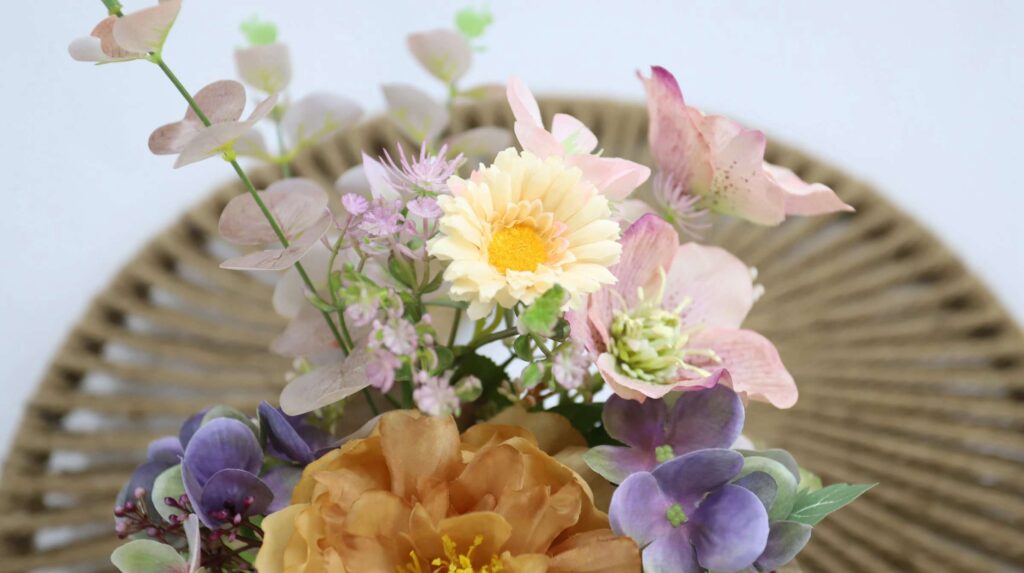
Economic Impact
The economic impact of the artificial flower industry in China is substantial and multifaceted. As a significant player in the world of manufacturing, this sector not only contributes to the country’s GDP but also plays a crucial role in job creation and regional development. The production and export of artificial flowers and plants have become a vital part of China’s economic landscape, reflecting the country’s strategic move towards higher-value manufacturing.
China’s dominance in the flower market has led to the establishment of numerous factories and business hubs across various cities and regions. These facilities are not just production centers; they are also centers of innovation, where new materials, designs, and manufacturing techniques are constantly being developed. This has had a ripple effect on the local economies, boosting business activities and providing employment opportunities to thousands.
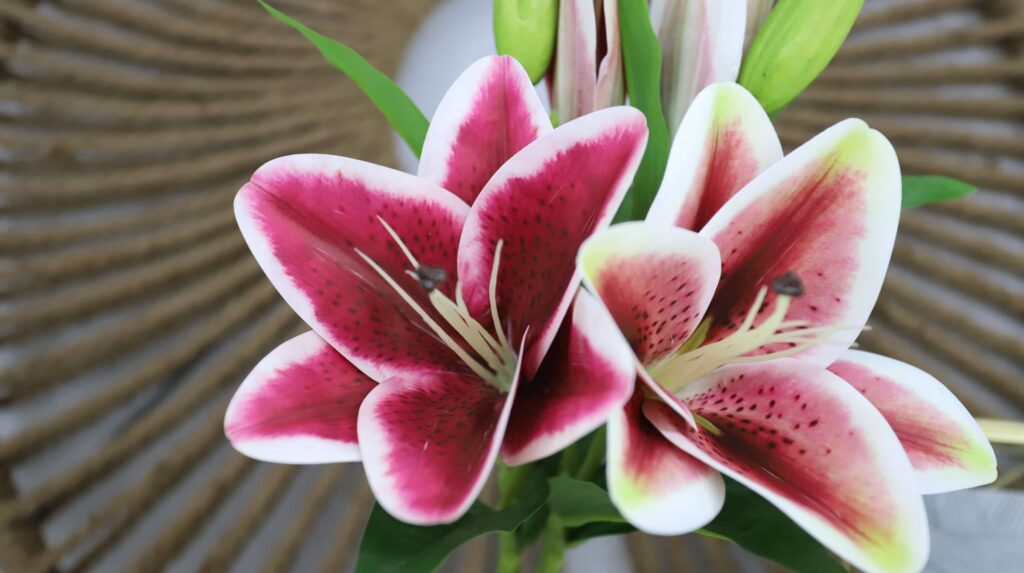
The industry has also significantly contributed to China’s export economy. Artificial flowers and plants are among the many products that have found a robust market in countries around the world, including key regions like Europe, America, and South Africa. The export of these products has helped balance China’s trade surplus and has been a key factor in the country’s ongoing economic growth.
Moreover, the industry has fostered a network of ancillary businesses, including suppliers of raw materials, logistics companies, and marketing agencies. This network has further amplified the economic impact, creating a vibrant ecosystem around the artificial flower industry.
The growth of China’s flower industry is not just a story of numbers and production statistics. It’s a narrative of how a single industry can influence a country’s economic trajectory, drive innovation, and create a lasting impact on the global market. As China continues to lead in this sector, the economic benefits are expected to grow, reinforcing the country’s position as a global manufacturing powerhouse.
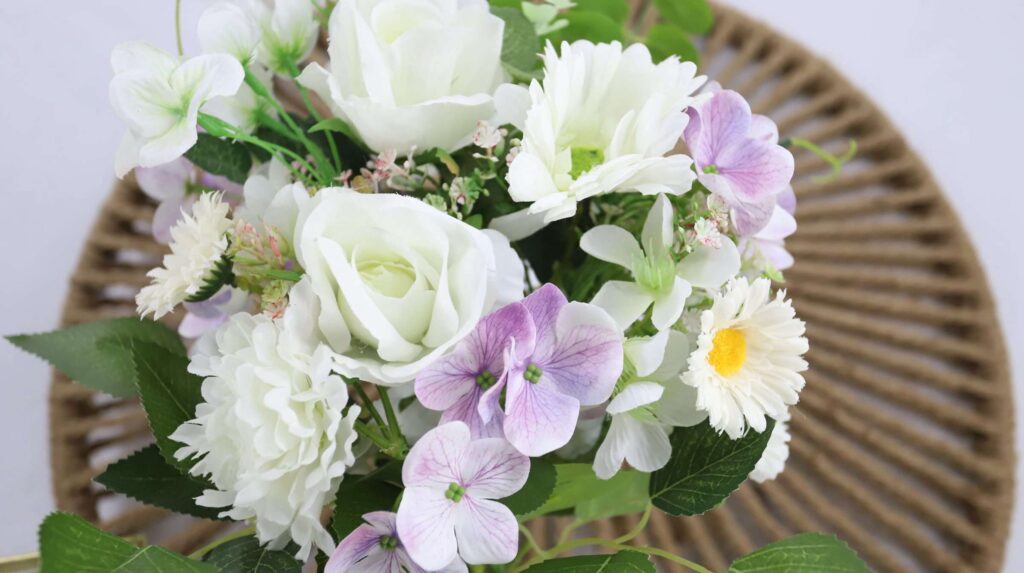
Sustainability and Environmental Considerations
In recent years, the artificial flower industry in China has increasingly turned its attention towards sustainability and environmental responsibility. As global awareness of plastic waste and ecological impact grows, Chinese manufacturers are adapting by integrating eco-friendly practices into their production processes.
The shift towards using sustainable materials in flower and plant manufacturing is a significant step forward. Companies are exploring alternatives to traditional plastics, such as biodegradable polymers and recycled materials, to reduce the environmental footprint of their products. This move not only addresses the issue of plastic waste but also appeals to environmentally conscious buyers in the market.
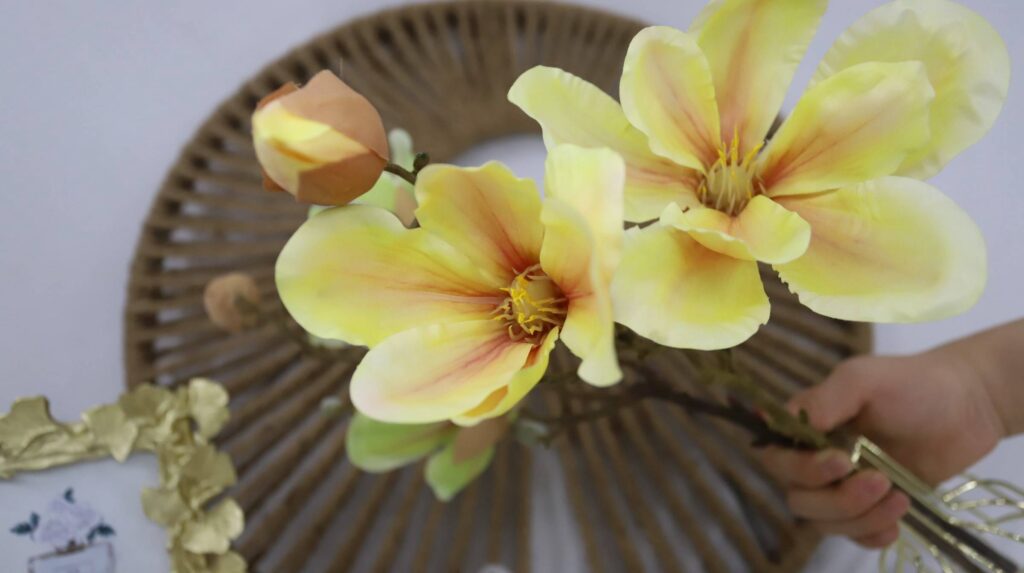
Energy efficiency is another key focus area. Many factories in China are upgrading their manufacturing facilities to reduce energy consumption and lower greenhouse gas emissions. These efforts are aligned with the country’s broader goals of achieving environmental sustainability and reducing the impact on nature.
Moreover, the industry is also mindful of the lifecycle of its products. Efforts are being made to ensure that artificial flowers and plants are not only durable but also recyclable, extending their usability and minimizing waste. This approach reflects a growing trend in the world of manufacturing – one that balances production needs with environmental stewardship.
In summary, China’s artificial flower industry is not just blooming in terms of growth and market reach; it is also evolving to become more sustainable and eco-friendly. These initiatives are crucial in ensuring the long-term viability of the industry and in maintaining its reputation in the global market.

Challenges and Opportunities
As with any thriving industry, the artificial flower sector in China faces its own set of challenges and opportunities. Navigating these is key to sustaining growth and maintaining a competitive edge in the global market.
Challenges:
- Competition: With the industry’s expansion, Chinese companies face increasing competition both domestically and internationally. Staying ahead requires continuous innovation in design, materials, and manufacturing processes.
- Market Dynamics: Changing consumer preferences and trends can impact demand. Adapting to these shifts, especially in diverse markets like Europe and America, is crucial for business sustainability.
- Environmental Regulations: As global concern over plastic waste and sustainability grows, adhering to environmental regulations becomes more challenging. Companies must balance production efficiency with ecological responsibility.

Opportunities:
- Technological Advancements: Leveraging new technologies in manufacturing can lead to more efficient production processes, higher quality products, and reduced environmental impact.
- Global Expansion: There is significant potential for expanding into new markets, especially in regions where the demand for artificial flowers and plants is growing.
- Sustainability Initiatives: Embracing eco-friendly practices can open up new business avenues and appeal to a broader customer base concerned about environmental impact.
The industry in China is well-positioned to tackle these challenges and capitalize on these opportunities. By focusing on innovation, quality, and sustainability, Chinese companies can continue to lead in the production and export of artificial flowers, influencing trends and setting standards in the global market.
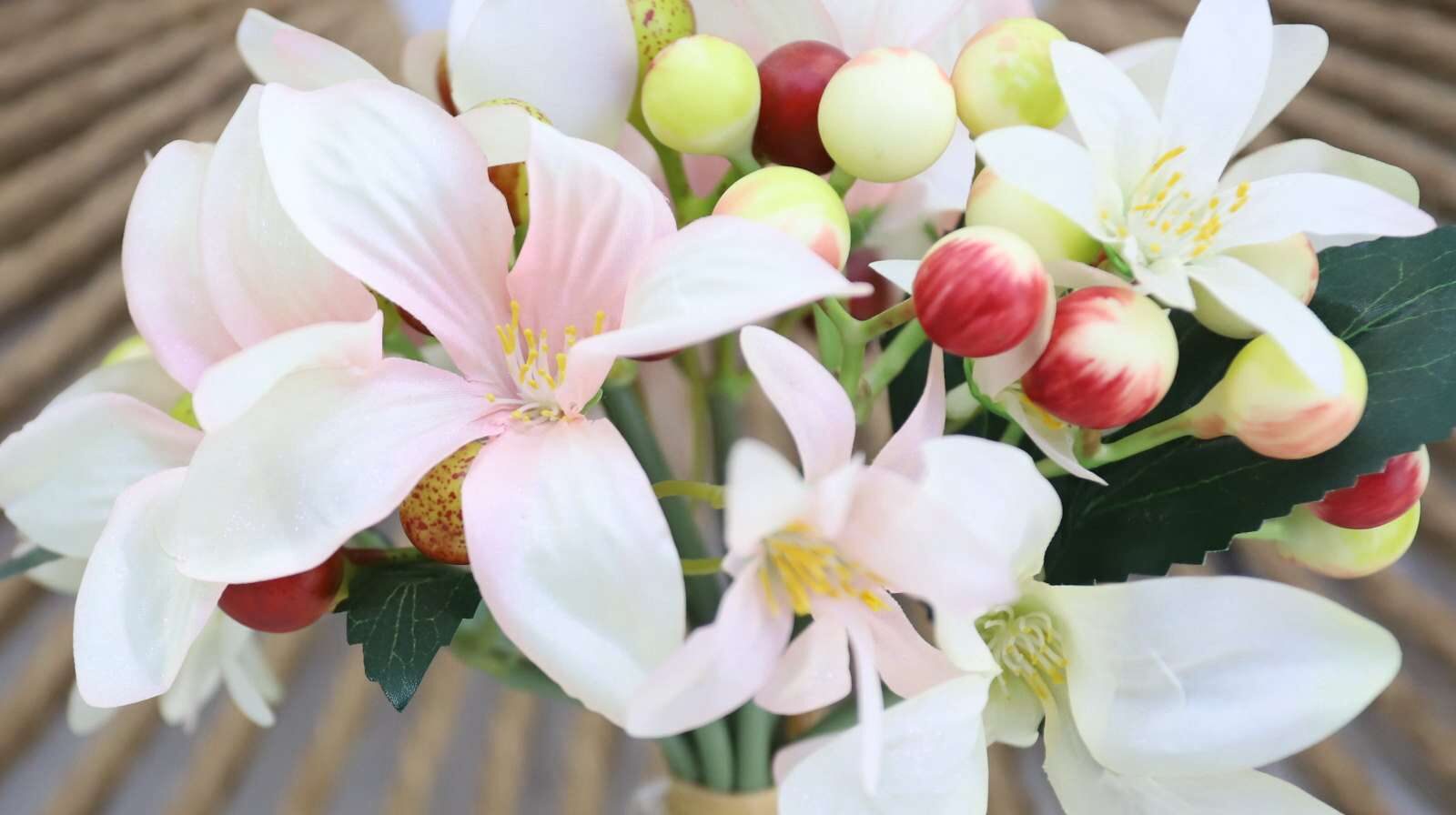
Case Studies/Success Stories
The growth and success of China’s artificial flower industry are best illustrated through specific case studies and success stories. These examples highlight the innovation, quality, and business acumen that have propelled Chinese companies to the forefront of the global market.
Case Study 1: Technological Innovation in Manufacturing
- A company in the Guangdong region has revolutionized the manufacturing process of artificial flowers. By integrating 3D printing technology, they have achieved unprecedented levels of detail and realism in their products. This technological leap has not only enhanced quality but also reduced production costs, allowing them to compete effectively in both domestic and international markets.

Case Study 2: Sustainable Practices Leading to Market Expansion
- Another success story comes from a company in Yiwu, known for its commitment to sustainability. By using recycled plastics and biodegradable materials, this company has tapped into the eco-conscious segment of the market, significantly increasing its sales in European countries where environmental concerns are paramount.
Case Study 3: Capturing the American Market
- A company based in Beijing has successfully entered the competitive American market. Through a combination of high quality, competitive pricing, and effective marketing strategies, they have established themselves as a leading supplier of artificial flowers and plants in the United States, showcasing the global reach and adaptability of China’s flower industry.
These case studies demonstrate the diverse strategies and strengths of Chinese companies in the artificial flower industry. From leveraging cutting-edge technology to embracing sustainability and effectively navigating international markets, these stories are a testament to the dynamic and resilient nature of this industry.

Conclusion and Future Outlook
As we have explored, the industry of artificial flowers and plants in China has undergone remarkable growth and transformation. From its humble beginnings to becoming a global leader in production and export, the journey of this industry reflects China’s broader growth as a manufacturing and business powerhouse. The flower and plant market in China has not only expanded in terms of volume but also in the diversity and quality of its offerings.
Looking ahead, the future of China’s artificial flower industry appears bright and promising. The expected trends indicate continued growth, driven by technological advancements, a focus on sustainability, and expanding global markets. As Chinese companies continue to innovate and adapt, they are well-positioned to meet the evolving demands of both domestic and international customers.

The industry is also likely to see a greater emphasis on eco-friendly production practices. With global attention on reducing plastic waste and promoting sustainability, Chinese manufacturers are expected to lead the way in developing and implementing greener manufacturing processes. This shift not only aligns with global environmental goals but also opens up new market opportunities for China in the realm of sustainable products.
In conclusion, the artificial flower industry in China stands as a symbol of the country’s dynamic business environment and its ability to adapt to changing global trends. As the world continues to embrace artificial flowers and plants for their beauty, versatility, and sustainability, China is poised to remain at the forefront of this blossoming industry.
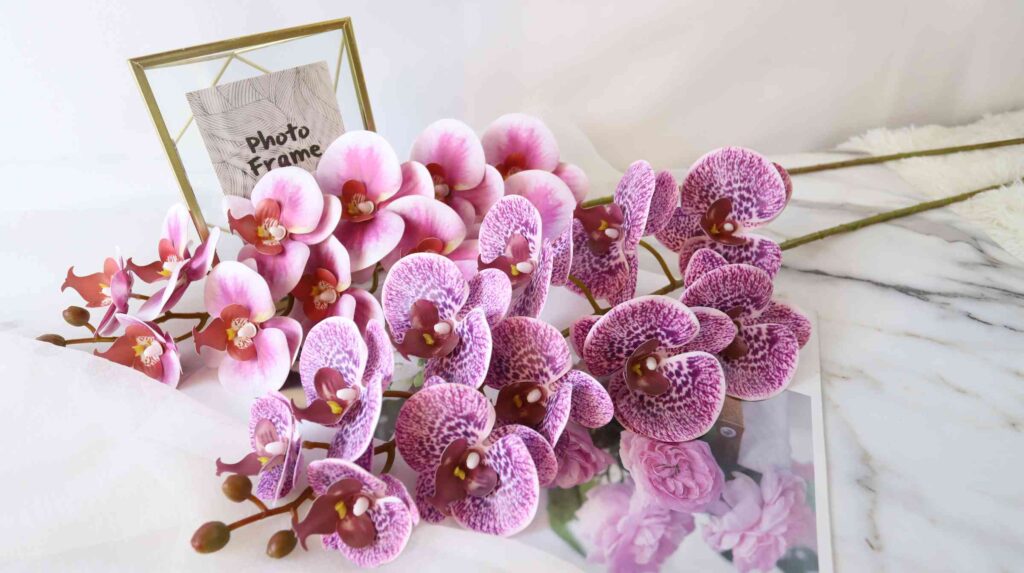
Call to Action
As we have journeyed through the vibrant and evolving landscape of China’s artificial flower industry, it’s clear that this sector offers immense opportunities for growth, innovation, and partnership. For distributors, wholesalers, and buyers around the world, China stands as a hub of high-quality, diverse, and sustainable artificial flowers and plants.
Sinofloral, at the forefront of this industry, invites you to explore the potential of a partnership that can bring a fresh bloom to your business. Our extensive range of artificial flowers and plants is designed to meet the diverse needs of the global market, ensuring that you always have access to the best products.
Visit Our Showroom: We understand the importance of experiencing the quality and variety of our products firsthand. That’s why we invite you to visit our 300 square meters showroom, where you can immerse yourself in the beauty and craftsmanship of our artificial flowers and plants.

Request Free Samples: To help you make an informed decision, Sinofloral offers free samples of our products. Experience the quality and detail of our flowers and plants in your own setting, and see for yourself why we are a leading name in the industry.
Customization and Support: At Sinofloral, we understand that each business has unique needs. We offer customization options to ensure that our products perfectly align with your requirements. Our efficient sales team is dedicated to providing you with all the support you need, from product selection to after-sales service.
Get in Touch: To start a conversation about how we can grow together, please contact us at sa***@********al.com. Download the free catalogue. Let’s explore how our premium artificial flowers and plants can add value to your business and delight your customers.
Join us in this blossoming industry and be a part of a future where beauty, quality, and sustainability thrive together. We look forward to partnering with you and bringing the best of China’s artificial flower market to your doorstep.

